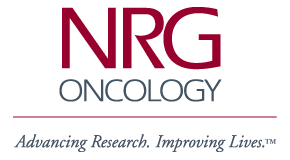

NSABP Members' Area
Password Protected - Access
Limited to NSABP Participating
Institutions Only
NSABP Foundation, Inc.
General NSABP Information
Financial Conflicts of
Interest Policy
Contact the NSABP
Employment

Clinical Trials Information
Clinical Trials Overview
Protocol Chart
Never Say Lost
Treatment Trials Information
Protocol B-51
Protocol B-52
Protocol B-53/S1207
Protocol B-55/BIG 6-13
Prevention Trials Information
Protocol P-1 - BCPT
Protocol P-2 - STAR
To report problems, ask
questions or make comments,
please send e-mail to:
Webmaster@nsabp.pitt.edu
Effect of Tamoxifen on Serum Insulinlike Growth Factor - I Levels in Stage I Breast Cancer Patients
Pollak M, Costantino J, Constantin P, Blauer S-A, Guyda H, Redmond C, Fisher B, and Margolese R
Journal of the National Cancer Institute 82:1693-1697, 1990
Abstract
Insulinlike growth factor I (IGF-I) has been shown to be a potent mitogen for breast cancer cells in vitro, and IGF-I receptors have been demonstrated on human primary breast neoplasms. In a randomized, placebo-controlled study, we document that administration of the antiestrogen tamoxifen to patients with breast cancer was associated with a statistically significant (P = .002) reduction in the serum level of IGF-I. The mean IGF-I level was 1.4 U/mL in the placebo-treated group and 0.9 U/mL in the tamoxifen-treated group. Because serum IGF-I level is growth hormone (GH) dependent and because data suggest that the pubertal surge in GH and IGF-I levels is sex steroid dependent, we speculate that the mechanism underlying our observation may involve blockade by tamoxifen of estrogen action in the hypothalamic-pituitary axis. We conclude that tamoxifen treatment reduces IGF-I levels and that this reduction may contribute to the therapeutic effect of the drug.
Department of Oncology, Jewish General Hospital, Montreal, Canada